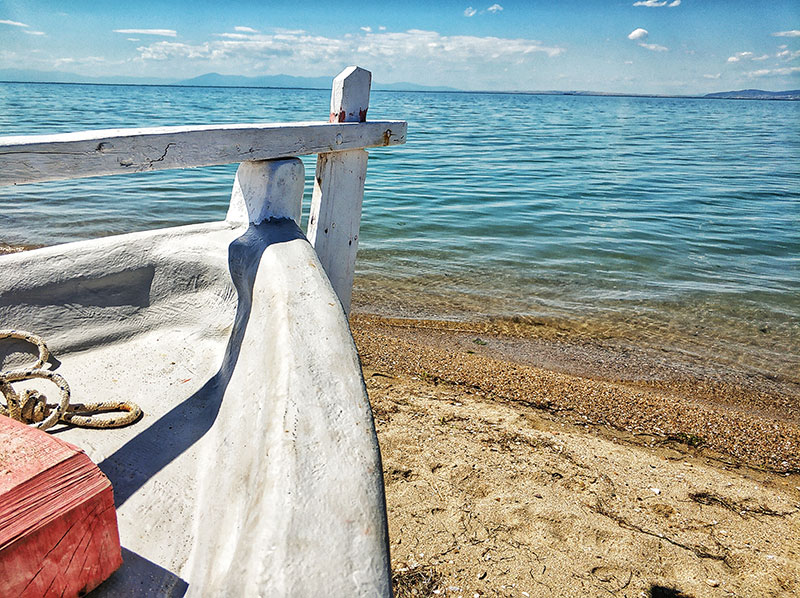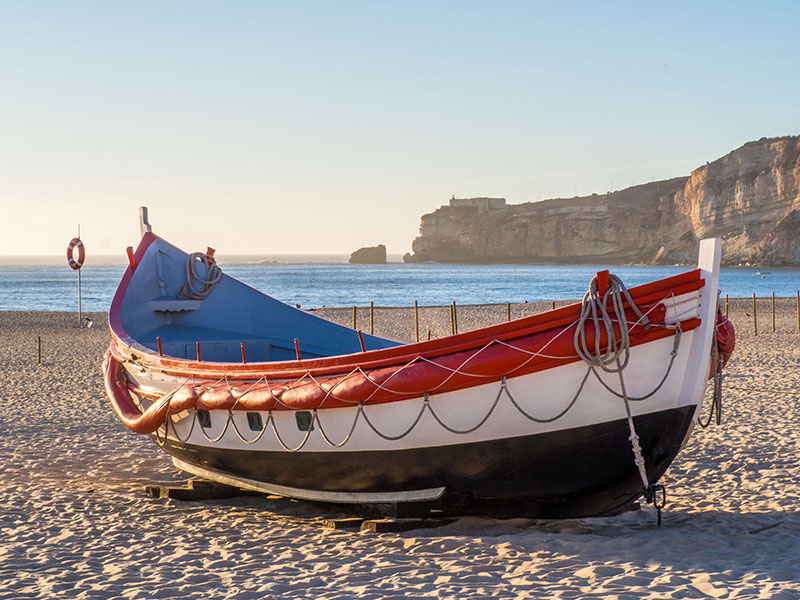Traditional Fishing at the Heart of Northern Portugal's Culture
Traditional fishing in northern Portugal embodies the soul of coastal communities. Between centuries-old traditions and artisanal techniques, this practice tells a story of resilience and respect for the sea.
Traditional fishing in northern Portugal, particularly along the coasts of Minho and Douro, is an activity deeply rooted in the culture and history of the region. For centuries, it has played an essential role not only in the local economy but also in shaping the cultural identity of coastal communities.

Are you planning to stay in the coastal towns of northern Portugal and discover the maritime traditions of this region? Find your short-term rental with Authentic Portugal.
The origins of traditional fishing
The earliest traces of fishing in northern Portugal date back to the pre-Roman era, when local peoples, particularly the Celts, used rudimentary techniques to catch fish in the rivers and along the Atlantic coasts. With the arrival of the Romans, these practices became more sophisticated, especially with the introduction of new fishing techniques and the creation of fish salting methods, aimed at export throughout the Roman Empire.
Traditional fishing techniques in Portugal
Traditional fishing in northern Portugal is characterized by the use of specific techniques adapted to local maritime conditions. Among the most emblematic methods, we can mention:
- The Art of Xávega: This fishing technique, still practiced today on certain beaches, involves using large nets pulled from the shore by boats or even oxen. The nets are arranged in a semicircle around a school of fish and then slowly drawn back to the beach, where the fish are collected. This method of fishing is often a community activity, involving several families from the village.
- Rabelo Boats: Historically used to transport Port wine on the Douro River, these boats were also employed for freshwater fishing. Their flat and wide design made them particularly effective for navigating the turbulent waters of the Douro.
- Longline Fishing: Primarily used for catching bottom-dwelling fish such as cod and conger eel, this technique involves using a long line equipped with numerous baited hooks. It is particularly common in the rocky coastal areas of the north.
The role of women in the History of fishing in Portugal
In the culture of traditional fishing in northern Portugal, women have always played a crucial role, although often behind the scenes. They were responsible for processing and selling the fish, as well as managing family affairs while the men were at sea.
On the beaches, it was common to see groups of women handling the preparation of nets or cleaning the fish.
The role of traditional fishing in the development of northern Portugal
Traditional fishing has played a fundamental role in the development of the main cities of northern Portugal, such as Porto, Viana do Castelo, and Póvoa de Varzim.
This activity not only supported the local economy for centuries but also contributed to the formation of the cultural and social identity of these regions.
Discover Viana do Castelo Discover Póvoa de Varzim
The coastal towns of northern Portugal have historically depended on fishing as their main source of livelihood. Fish, particularly cod, sardines, and other local species, were not only consumed locally but also exported to other regions of Europe.
This trade enabled cities like Porto to become dynamic economic centers by establishing commercial networks that stimulated urban growth.
From traditional fishing to industrialization
The prosperity generated by fishing led to the urbanization of coastal areas, with the construction of ports, quays, and infrastructure related to maritime trade. In Porto, for example, the development of the Douro quays was crucial for the transport of fish and wine. This facilitated the city's expansion and the growth of its population.
Traditional fishing also shaped community life in these cities. Fishing villages, with their unique customs and traditions, integrated into larger cities, bringing a rich cultural heritage.
Festivals related to the sea, religious processions to bless the fishermen, and fish markets are examples of how fishing has influenced the social and cultural life of northern cities. Today, traditional fishing is often integrated into the tourism economy, with markets and festivals celebrating this heritage, thereby contributing to the tourist appeal of these cities.
Discover the sea festival in Esposende
As cities evolved with industrialization, traditional fishing had to adapt. However, its role in the history of these cities' development remains undeniable.
Traditional fishing in northern Portugal is not just an economic activity; it is a living heritage, a testament to the intimate relationship between people and the sea.

This practice, marked by centuries of adaptation and resilience, continues to define the cultural identity of coastal communities and serves as a reminder of the importance of preserving traditions in an ever-changing world.




